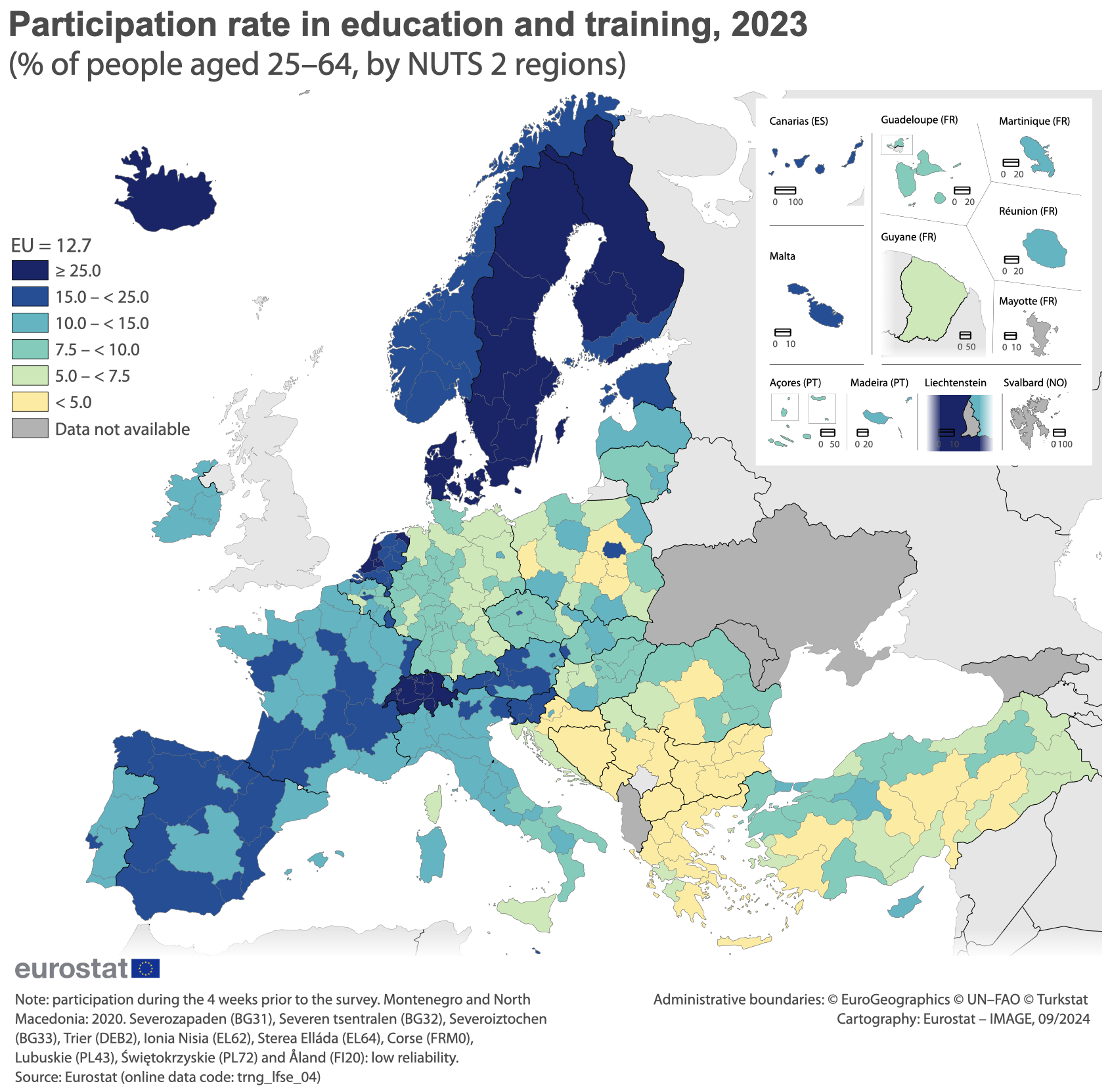Lifelong Learning in Europe: Closing the Gaps in Regional and Gender Participation
Part One: Lifelong Learning in Europe
In 2023, the European Union reported that 12.7% of adults aged 25–64 participated in education and training during the four weeks prior to the survey. This figure reflects a steady increase from previous years, indicating a growing commitment to lifelong learning across the region.
Notably, the Swedish capital region of Stockholm led with a participation rate of 41.3%, significantly surpassing the EU average.
Regional disparities are evident, with certain areas exhibiting higher engagement in adult education. For instance, regions in Sweden, Denmark, and the Netherlands consistently report elevated participation rates.
Conversely, some regions in Bulgaria, Greece, and Croatia have rates below 5%, highlighting the need for targeted educational initiatives in these areas. Below is an insightful EU Map showing the disparity between countries.
The full dataset can be viewed via this link.
Part Two: Gender differences in Lifelong Learning
Gender differences also play a role in educational participation. In 2023, 12.9% of women aged 25–64 engaged in education and training, compared to 10.8% of men. This trend was particularly pronounced in regions with high overall participation rates, such as those in Sweden, where the gap between female and male participation was notably wide.
These statistics underscore the importance of accessible and tailored educational opportunities to address regional and gender disparities.
StudyfinderAI helps tackle these challenges by making further education research easy, language-neutral, and accessible for everyone, empowering individuals to pursue lifelong learning regardless of location or background.
By leveraging data-driven insights, institutions can develop strategies that promote inclusive learning environments and support lifelong education for all individuals.
To learn more about how StudyfinderAI is addressing these challenges or to explore partnership opportunities, please reach out to us via Email.
Furthermore, the European Union maintains the “Eurostat” institution, which delivers high-quality statistics and data on Europe, also in the EdTech sector. Find out more about them via this Link.
Would like to read the full report about this topic? Follow this Link.
We hope this short Blog was insightful!
Talk soon,

